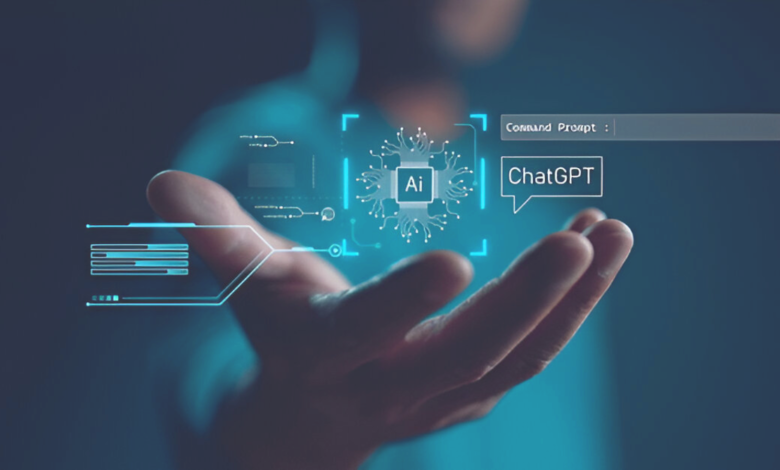How Artificial Intelligence Is Redefining Everyday Apps in 2025
Discover how artificial intelligence is transforming mobile applications with smarter features and personalized experiences. The future of tech is here.

Artificial Intelligence is revolutionizing how we interact with technology, transforming everyday apps into intelligent, personalized companions. In 2025, artificial intelligence has moved beyond novelty features to become the backbone of our digital experiences. From morning routines to nighttime wind-downs, AI-powered apps now anticipate our needs, streamline tasks, and deliver hyper-relevant content with uncanny precision. This seismic shift is making technology more intuitive than ever before – quietly learning our habits, predicting our preferences, and adapting in real-time to create seamless digital experiences.
The integration of AI in everyday apps represents one of the most significant technological leaps of our time. What began as simple automation has evolved into sophisticated cognitive computing that understands context, emotion, and intent. In 2025, we’re seeing AI not just respond to commands, but proactively enhance our lives – whether it’s a fitness app that adjusts workouts based on sleep patterns, a news aggregator that learns our evolving interests, or a shopping assistant that knows our style better than we do. This is explores how AI is fundamentally reshaping the apps we use daily, creating a future where technology doesn’t just serve us, but understands us.
How AI Is Redefining Everyday Apps in 2025
The Evolution of AI in Everyday Applications
The rapid advancements in AI have enabled applications to move beyond basic automation into cognitive decision-making. Machine learning (ML) algorithms, natural language processing (NLP), and computer vision are now fundamental components of modern apps, allowing them to learn from user behavior and adapt in real time. In 2025, AI-powered apps are not just reactive but proactive, anticipating user needs before they are explicitly expressed. For instance, virtual assistants like Siri, Google Assistant, and Alexa have evolved into full-fledged digital companions capable of managing schedules, making reservations, and even offering emotional support through sentiment analysis.
Personalization at Scale
One of the most significant contributions of Artificial Intelligence in 2025 is its ability to deliver hyper-personalized experiences. Streaming platforms like Netflix and Spotify use AI-driven recommendation engines to analyze user preferences, viewing habits, and even mood patterns to suggest content. E-commerce apps like Amazon and Alibaba employ AI to customize shopping experiences by predicting purchase behavior based on past interactions. Social media platforms such as Instagram and TikTok leverage AI to curate feeds that maximize engagement, ensuring users see content most relevant to their interests. This level of personalization enhances user satisfaction and drives higher retention rates for businesses.
AI in Healthcare Apps
Healthcare applications have seen one of the most transformative impacts of AI in 2025. AI-powered diagnostic tools can now analyze medical images, detect anomalies, and even predict potential health risks with remarkable accuracy. Apps like Ada Health and Babylon Health use AI chatbots to provide preliminary medical advice, reducing the burden on healthcare professionals. Wearable devices integrated with AI, such as smartwatches, monitor vital signs in real time and alert users to irregularities, enabling early intervention. Furthermore, AI-driven mental health apps like Woebot offer cognitive behavioral therapy, helping users manage anxiety and depression through conversational AI.
Smart Finance and AI-Powered Banking
The financial sector has embraced AI to enhance security, efficiency, and customer experience. Banking apps now use AI for fraud detection, analyzing transaction patterns to flag suspicious activities instantly. AI-driven chatbots handle customer inquiries, process loan applications, and even provide investment advice. Robo-advisors like Betterment and Wealthfront utilize machine learning to optimize investment portfolios based on market trends and individual risk tolerance. Additionally, AI-powered credit scoring systems assess borrowers more accurately by analyzing non-traditional data points, making financial services more inclusive.
AI in Education and Learning Apps
Education technology has been revolutionized by AI, making learning more interactive and adaptive. Language learning apps like Duolingo use AI to tailor lessons based on a user’s proficiency and progress. Artificial Intelligence tutors provide real-time feedback on assignments, helping students improve their skills. Virtual classrooms powered by Artificial Intelligence analyze student engagement levels and adjust teaching methods accordingly. Furthermore, AI-driven plagiarism checkers and automated grading systems save educators time while maintaining academic integrity.
The Future of AI in Everyday Apps
Hyper-Personalized User Experiences
AI-powered apps will increasingly leverage machine learning (ML) and predictive analytics to deliver highly customized experiences. From personalized news feeds to tailored shopping recommendations, AI will analyze user behavior in real time to provide content that matches individual preferences. Streaming services like Netflix and Spotify already use AI to suggest movies and music, but future apps will refine this further by incorporating emotional AI detecting user moods through voice and facial recognition to adjust recommendations dynamically.
Smarter Virtual Assistants & Conversational AI
Voice assistants like Siri, Alexa, and Google Assistant will evolve into more proactive, context-aware digital companions. Future AI assistants will anticipate needs such as booking appointments before being asked or suggesting recipes based on fridge inventory by integrating with IoT devices. Advanced natural language processing (NLP) will enable more human-like conversations, reducing misunderstandings and improving efficiency in customer service chatbots.
AI in Healthcare
Healthcare apps will use Artificial Intelligence for early disease detection, personalized treatment plans, and remote patient monitoring. Wearable devices will track vital signs and alert users to potential health risks before symptoms appear. AI-driven mental health apps will offer real-time therapy through sentiment analysis, while diagnostic tools will use computer vision to analyze medical scans with near-human accuracy, reducing diagnostic errors.
Enhanced Security & Fraud Detection in Finance
AI will revolutionize financial apps with biometric authentication (facial recognition, voice ID) and real-time fraud detection. Machine learning models will analyze transaction patterns to flag suspicious activity instantly. AI-powered robo-advisors will provide smarter investment strategies by processing vast amounts of market data, making wealth management more accessible to everyday users.
AI-Powered Education & Adaptive Learning
Educational apps will use Artificial Intelligence to create fully personalized learning paths. Intelligent tutoring systems will adapt lessons based on a student’s strengths and weaknesses, while automated grading and feedback will save educators time. Language learning apps will employ AI to simulate real-life conversations, making fluency faster and more engaging.
Autonomous Features in Productivity & Business Apps
AI will automate repetitive tasks in business apps, such as email sorting, scheduling, and data entry. Future project management tools will predict delays and suggest optimizations, while AI-driven CRM systems will analyze customer interactions to improve sales strategies.
Ethical AI & Privacy Concerns
As Artificial Intelligence becomes more embedded in apps, ethical concerns around data privacy, bias, and transparency will grow. Developers must prioritize explainable AI (XAI) to ensure algorithms are fair and decisions are understandable. Regulations like GDPR will evolve to address AI’s ethical challenges.
Read More: Yes, There’s a Real U.S. Court Case About Psychic Cats
Conclusion
Artificial Intelligence is redefining everyday apps in 2025 by creating a new paradigm of intelligent, anticipatory technology that seamlessly integrates into our lives. As we’ve explored, these advancements are transforming everything from personal assistants to healthcare platforms, making them more intuitive, efficient, and personalized than ever before. The apps we use daily are no longer just tools, but intelligent partners that learn and adapt to our unique needs and preferences. This revolution in app functionality represents a fundamental shift in human-computer interaction that will only accelerate in the coming years.
Looking ahead, AI’s role in everyday apps promises even more groundbreaking innovations while raising important questions about privacy, ethics, and digital wellbeing. While these intelligent systems offer unprecedented convenience and personalization, they also challenge us to establish responsible frameworks for their development and use. As we embrace this AI-powered future, the ultimate success of these technologies will be measured not just by their capabilities, but by how effectively they enhance human experiences without compromising our values or autonomy. The apps of 2025 are just the beginning of this transformative journey.
FAQs
How is Artificial Intelligence improving personalization in apps?
Artificial Intelligence analyzes user behavior and preferences to deliver tailored content, recommendations, and services, enhancing engagement and satisfaction.
What role does AI play in healthcare apps?
AI assists in diagnostics, virtual consultations, real-time health monitoring, and mental health support through chatbots and predictive analytics.
Are AI-powered banking apps secure?
Yes, Artificial Intelligence enhances security by detecting fraudulent transactions and using biometric authentication to protect user data.
How does Artificial Intelligence benefit educational apps?
Artificial Intelligence personalizes learning experiences, provides real-time feedback, automates grading, and adapts teaching methods to individual student needs.
What are the ethical concerns surrounding AI in apps?
Issues include data privacy, algorithmic bias, lack of transparency, and the need for regulations to ensure responsible AI use.











